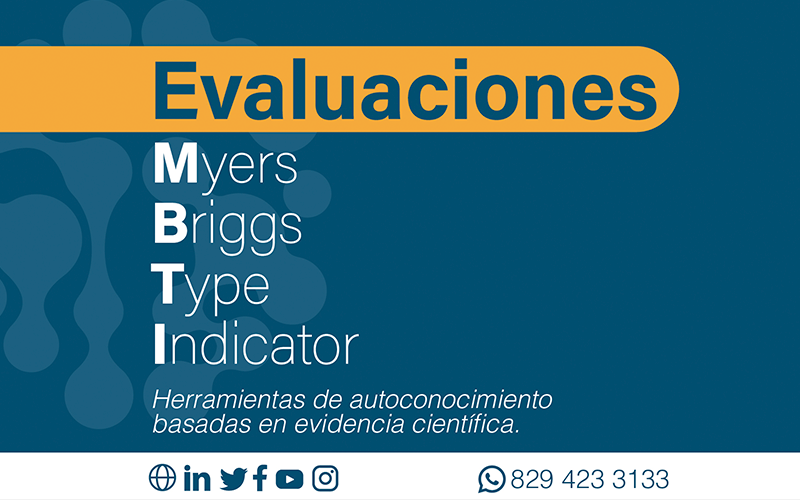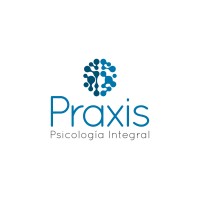
MBTI® Assessment, a self-knowledge tool 15-03-2021
By: Mariely Quéliz
The personality type consists of four letters that define our natural preferences in terms of:
- The world they prefer when it comes to directing and receiving energy (Extraversion/Introversion (E/I))
- Extraversion: directs and receives their energy to and from their outer world
- Introversion: directs and receives their energy to and from their inner world
- How they perceive information, facts and people (Sensation/Intuition (Y/N))
- Sensation: Receives real and tangible information and has high attention to detail
- Intuition: receives information observing the grand scheme, looking for connections between the facts
- Based on what they make their decisions (Thought/Feeling (T/F))
- Thinking: prefers to mentally separate from the situation to examine it objectively and make the decision based on solutions applicable to other similar situations
- Feeling: prefers to place yourself within the situation in order to identify with the people involved and make the decision based on their values, showing respect for the people
- The structure that they follow in their day to day (Judgment/Perception (J/P))
- Judgment: they follow a detailed structure, they account for the time that will be taken for most things
- Perception: they are more spontaneous, they can improvise all day, they need some pressure to complete tasks and they may feel pigeonholed with schedules
Benefits of MBTI
One of the most rewarding results of this assessment is an increase in self-awareness. There is something about knowing who we are, what we like, what we stand for and what we believe in, that makes us feel stronger and more secure. We even learn more easily about the people around us.
As with anything else, until we have gone through a learning process, we do not know much about a particular topic, there will be those who will find themselves questioning how they ended up in a job they hate, an incompatible relationship or why they are addicted to certain behaviors. Most of us simply jump from one situation to another, seizing opportunities without a strategic plan, until we begin to realize that something is not quite right.
Self-knowledge is one of the most rewarding aspects of this advice. Simply put, counseling helps you learn about your motivations, your attitudes, the beliefs that drive your behavior, things that most people have not thought about systematically. In addition, the assessment also guides whoever takes it to start thinking about themselves in a deeper way and how they could play an interactive role in shaping the surrounding environment.
The assessment isn't just about your natural preferences. It tells you about your favorite cognitive processes, which are: how you perceive information (through sensation or intuition) and how you make judgment (thought or feeling), which are the two preferences of the medium (example: iNTj, the N and the T are the cognitive processes).
Depending on the stage of life in which we are, the "me" becomes an active variable in your model of the world, and not just a passive receiver of the environment. According to Carl G. J, when we are in our first "half" of life, we are developing our favorite cognitive processes, but we are influenced by our family environment, by the country in which we live, by our work; it is where the "ego" is being built, where success is determined by achievements and how useful we feel. Then comes that stage of confusion and inner questioning that so many people experience in the so-called "middle age", which is not a specific age, but which is usually from 30 to 40 years. It is here that we decide to take a better look at our “I”, to question whether who we are is really who we are. And finally comes the second "half" of life where we give room to develop the non-favorite cognitive processes (example: the non-favorites of the iNTj are SF (feeling and feeling), the opposite of intuition and thought). This openness that we give to an inner focus, to develop more and to be complacent with oneself is what leads us to individuation and wisdom.
Originally, Jung developed his type theory as part of his patient counseling practice. Personality type can shed light on a number of issues that are commonly addressed in counseling: self-esteem, difficulties in relationships, development and transitions in life, decision-making, and others. You can also provide nonjudgmental language for talking about topics in counseling.
Clearly, the theory and use of MBTI® are widespread in the fields of counseling and psychology. Whether you arrive at counseling knowing your type or not, your therapist or counselor can introduce you to the type or help you discover practical ways to apply type theory to your particular situation.
It is always important that the type of personality is not the answer to everything, just one more tool to help you grow, achieve and prosper in your life.

